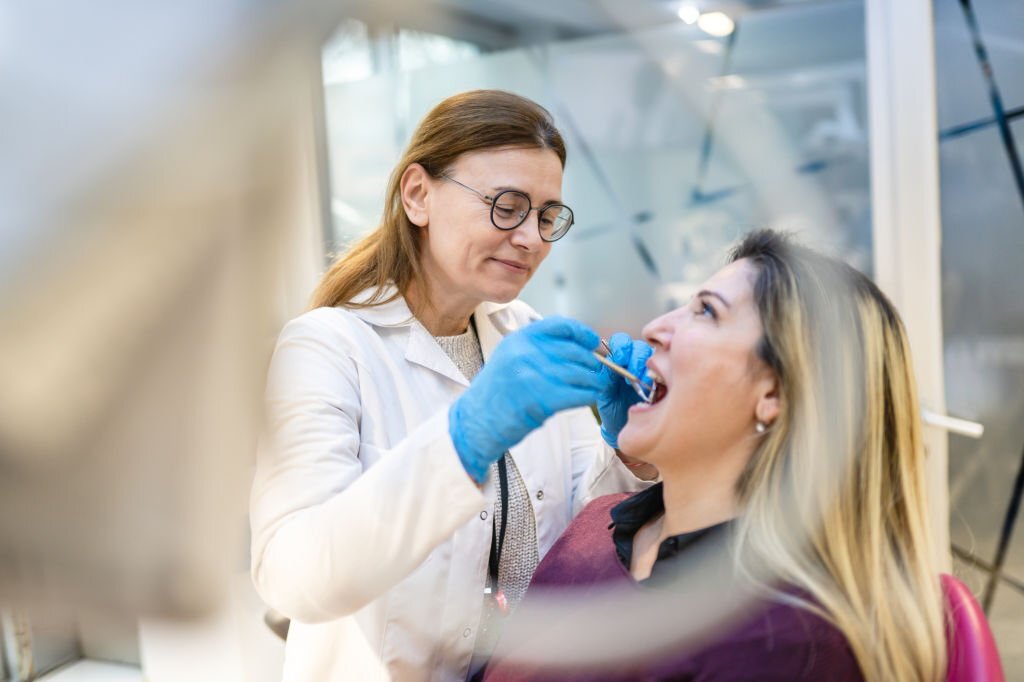Are White Spots on Teeth Bad for Your Health? Wondering if it’s harmful to your health? Well, white spots on teeth can be caused by various factors and have different effects on your oral health. In this article, we will examine the causes and possible consequences of white spots on the teeth, and give tips on how to prevent and treat them.
What Causes White Spots on Teeth?
White spots on teeth can be caused by several factors, including:
- Fluorosis: Fluorosis is a condition that occurs when a child ingests too much fluoride while their teeth are still developing. This can lead to white spots or streaks on the teeth.
- Poor oral hygiene: If you don’t brush and floss your teeth properly, bacteria can build up on your teeth, leading to the formation of plaque. Plaque is a sticky film that can harden into tartar, which can cause white spots on your teeth.
- Acidic foods and drinks: Consuming acidic foods and drinks can weaken the enamel on your teeth, leading to the development of white spots. Examples of acidic foods and drinks include citrus fruits, soda, and sports drinks.
- Certain medications: Some medications, such as antihistamines and antidepressants, can cause dry mouth, which can lead to the development of white spots on teeth. Dry mouth can also be a side effect of certain medical conditions, such as diabetes and Sjogren’s syndrome.
Are White Spots on Teeth Bad for Your Health?
Are white spots on teeth bad? white spots on teeth are not inherently harmful to your health, but they can be a sign of underlying problems with your oral hygiene or overall health. For example, if you have white spots on your teeth due to poor oral hygiene, it could be a sign that you are not properly removing plaque and tartar from your teeth. This can lead to tooth decay and gum disease if left untreated.
Additionally, if you have white spots on your teeth due to fluorosis or the consumption of acidic foods and drinks, it could be a sign that your enamel is weakening. Enamel is the hard outer layer of your teeth that protects them from decay and damage. When it is weakened, your teeth may be more susceptible to cavities and other dental problems.
Preventing and Treating White Spots on Teeth
Fortunately, there are steps you can take to prevent and treat white spots on your teeth:
- Practice good oral hygiene: To prevent white spots due to poor oral hygiene, be sure to brush your teeth twice a day with fluoride toothpaste and floss daily. This will help remove plaque and tartar from your teeth and prevent gum disease.
- Limit your intake of acidic foods and drinks: To prevent white spots due to acidic foods and drinks, try to limit your intake of these types of items. If you do consume them, be sure to brush your teeth or rinse your mouth with water afterwards to remove any residue. You can also use a straw when drinking acidic beverages to minimize contact with your teeth.
- Use fluoride products: Fluoride helps to strengthen the enamel on your teeth and can prevent white spots from forming. You can find fluoride in toothpaste, mouthwash, and other oral care products. You can also ask your dentist about fluoride treatments or using a fluoride rinse at home.
- Visit your dentist regularly: Regular dental check-ups can help catch any potential issues with your oral health, including white spots on your teeth. Your dentist can recommend a treatment plan to address any issues and help prevent them from worsening.
- Treatment options: If you already have white spots on your teeth, there are several treatment options available. These may include teeth whitening treatments, composite resin fillings, or porcelain veneers. Your dentist can help you determine the best treatment option for your specific needs.
In conclusion, white spots on teeth are not necessarily harmful to your health, but they can be a sign of underlying issues with your oral hygiene or overall health. By practicing good oral hygiene, limiting your intake of acidic foods and drinks, using fluoride products, and visiting your dentist regularly, you can prevent and treat white spots on your teeth. If you are concerned about white spots on your teeth, be sure to speak with your dentist for a proper diagnosis and treatment plan.
